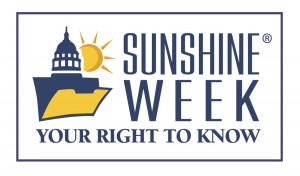|
|||||||||||||||
|
|||||||||||||||
|
Sunshine Week 2018
|
|||||||||||||||
![]()
|
editorials & columns
|
|
 “More than one-third of survey respondents said they were denied records more frequently at all levels of government in the last four years.” “More than one-third of survey respondents said they were denied records more frequently at all levels of government in the last four years.” |
Three months ago, we published an editorial about an inexplicable new state law that shields the names of juvenile homicide victims from the public and the media. Clearly, there is a need for great sensitivity in the aftermath of such an unthinkable (but all too common) tragedy, but withholding this fundamental information is unnecessary and counterproductive. Now, when police redact the name of a pre-teen boy who died in a car accident, we see what happens when a broad interpretation of that law is applied. Are these unintended consequences, or intended? We can’t know the precise motivation that impelled both houses of the General Assembly to convincingly pass this badly conceived law, but we certainly hope it was not this. The latest issue came when a 12-year-old Newport News boy died in a car wreck. Because his mother was charged with DUI in the Feb. 24 incident — and because the law in question covers juveniles who die as a result of “any crime” — police were required by state law to shield the child’s name from media. This left veteran reporters scratching their heads and trying, in vain, to recall an instance in which they were denied the name of a person killed in a car crash.
Daily Press On July 4, 1966, Lyndon B. Johnson signed the first federal sunshine law in the United States. The text of the bill stated, “a democracy works best when people have all the information that the security of the nation will permit.” President Johnson signed the Freedom of Information Act (FOIA) into law, but the law was authored by freedom of information champion John Moss twelve years earlier. Moss’ inspiration arose from the government’s secrecy during the Cold War era. Following the Freedom of Information Act’s passage, open records laws spread across the states from Washington, D.C. to California. Behind each of these laws was the worthy premise that without access to information, the public cannot hold the government accountable. Unfortunately, experts say that public access to records is worse today than it was four years ago. Today, public officials are more likely to deny record requests, according to nearly half of the media experts surveyed in the “Forecasting Freedom of Information” study. In the same study, more than one-third of survey respondents (38 percent) said they were denied records more frequently at all levels of government in the last four years. |

